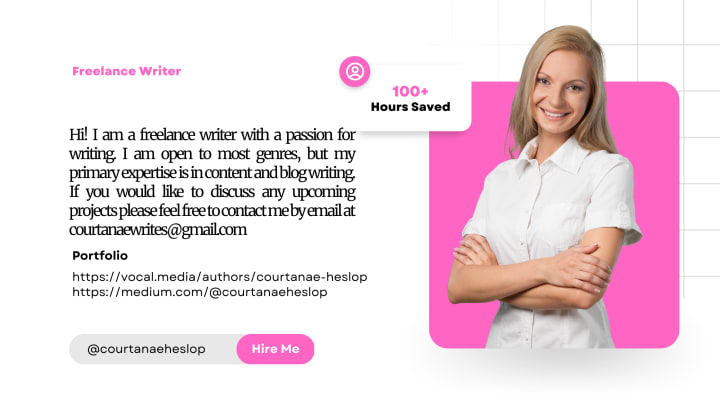The Devil is in the Details
When I first learned that I was going to be unemployed for 7 months, it didn't seem like a big deal. After all, I had been out of work before and knew how to get interviews. But then things changed...

When I first learned that I was going to be unemployed for 7 months, it didn't seem like a big deal. After all, I had been out of work before and knew how to get interviews. But then things changed...
When I first learned that I was going to be unemployed for 7 months, it didn't seem like a big deal.
It's just a phase. You will get through it and everything will be ok.
But then, as the days turned into weeks and the weeks into months, my new reality started to sink in: I would not be working as an attorney anymore; my income had dropped substantially (and would continue to do so); there were no guarantees when or if I'd find another job like mine; and worst of all--it seemed like no one cared about my situation or even noticed that things had changed dramatically for me since last year when everything was fine!
I had been out of work before, and knew how to get interviews.
So, how do you land an interview?
You've got to be proactive. You can't just rely on your resume to get you a job; you need to get out there and talk to people. Networking is key! And by networking, I mean talking at length with as many different types of people as possible: friends from school and work, family members (including distant relatives), neighbors who live in the same building as you...even strangers at the grocery store or coffee shop will do if they seem friendly enough. The more people who know about your job search, the better chance there is that someone will refer someone else who knows someone else who might be able to help out too...and so on and so forth until eventually someone does refer someone else who knows someone else whose company needs an employee like yours!
But then I got the job.
It was an unplanned, accidental job. It was a "we need someone" kind of situation, and I happened to be there at the right place at the right time. It paid more than what I had been making before (and this is saying something because my previous salary was pretty good), but it wasn't ideal for me because it didn't align with my career goals or interests at all--but beggars can't be choosers!
I worked hard at this new gig, trying my best to learn as much about myself and my skills as possible along with learning how things are done around here so that next time around when another opportunity comes up like this one did again (and again), I'll know whether or not it's worth pursuing further based on whether or not they match up with who I am now versus where I want/need myself five years from now."
And it was fantastic!
I was a research assistant at the university library. I was doing what I loved, making a difference and working with great people who were also passionate about their jobs. We had fun together, but when it came down to business we were all very professional and worked hard for our employer. The job was challenging and rewarding, which made me feel like my skills were being utilised in the best possible way
But...
If you don't like your job, it's going to show in your work. You need to be happy where you are and how you're spending your time. This doesn't mean that everything should be rainbows and butterflies all the time; it just means that if there are things about your current situation that aren't working for you, then it's up to YOU (not anyone else) to make changes in order for them not only work better for everyone involved but also so that other people can see what an amazing person who cares about others' happiness even when things get hard on them or when they have no idea how their actions affect others around them might look like!
Like many people, I was working in a job that didn't use all of my skills and abilities.
I was good at what I did, but there were things I could be doing better. I wanted to learn more and be more productive.
In this situation, it's easy to fall into the trap of thinking that if only you had different coworkers or bosses or clients (or even an office) then everything would be better. But this leads nowhere; after all, you can't control other people's behavior! Instead of focusing on what others are doing wrong or right--and getting frustrated by their behavior--it's better to focus on what YOU can do differently:
It's hard to be really productive at work when you know there is more you could be doing to add value to your organization.
The problem is that many of us don't have the opportunity to do so. We are stuck in a job that doesn't challenge us or provide any real satisfaction, because we don't have enough time or resources available for us to make an impact on our company's bottom line (or at least show some progress). It's like being stuck in traffic: You feel like you are wasting time, bored, not happy and not contributing anything meaningful--and worst of all--like someone else has stolen away what should be rightfully yours!
How do you find those things that make a difference?
The first step is to ask the right questions. This can be difficult because you need to know what you don't know, which is why it's important to find people who do know what they're talking about and ask them for help. The second step is finding successful people doing what it is that you want to do and asking them how they got started or learned their trade or craft.
The third step is finding someone willing and able (and eager!) enough in helping others learn from their experiences so that others may benefit from those lessons as well!
Spending time talking with others about their work can help you see new ways of doing things.
Talking to your colleagues, boss and customers is a great way to get ideas for new products or services. Talking with suppliers can also help you see new ways of doing things. It's not just the people directly in front of you that have valuable knowledge: talking with suppliers' suppliers will give you insight into their processes, which may be useful when making decisions about how much time and money should be invested in something. And don't forget about competitors--they'll often have interesting perspectives on what works for them (and why) that might help inform your own choices!
Conclusion
The devil is in the details. It may seem like a small thing, but if you pay attention to all of the little things that go into your daily work routine, you can make big changes. I hope this post has helped you identify one or two areas where you could be more productive at work by paying attention to detail!

About the Creator
Courtanae Heslop
Courtanae Heslop is a multi-genre writer and business owner.






Comments
There are no comments for this story
Be the first to respond and start the conversation.